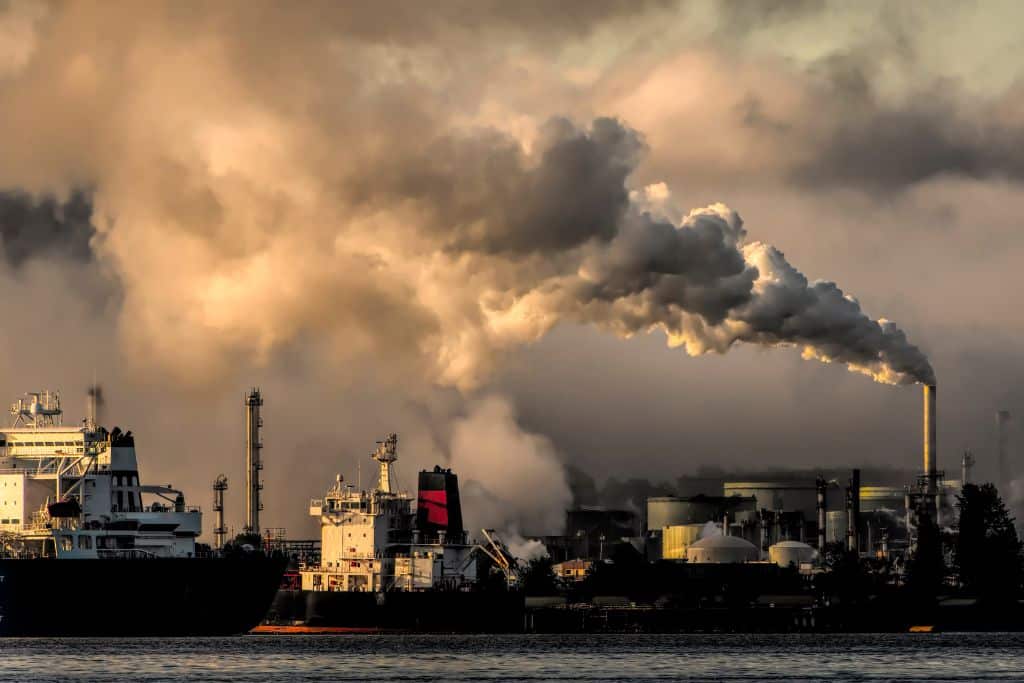Failure to meet net-zero targets would put the world on track to experience catastrophic global warming by the end of the century, a new study suggests.
—
The world remains far from delivering a safe climate future, as an overwhelming majority of countries are underdelivering on net-zero targets and their Nationally Determined Contributions (NDCs), a new study has found.
Researchers behind a paper published last week in the scientific journal Science assessed net-zero targets for 35 major emitters, including the European Union, which together accounted for about 82% of global greenhouse gas emissions in 2019. Three factors were taken into account in the credibility and confidence assessment rating: whether or not a country’s net-zero targets are legally binding, whether they are accompanied by a published implementation plan, and whether a country’s current policies are already contributing to lower emissions by at least 10% by 2030 compared to 2020.
Researchers found that about 90% of the assessed net-zero plans are unlikely to be achieved, with confidence levels of “lower” or “much lower.” India, Australia, Brazil, Indonesia, Iran, Israel, South Africa, and the United Arab Emirates – this year’s COP28 host, are among the countries most behind in terms of achieving their targets. The latter nation has repeatedly described fossil fuels as “key” components to a smooth energy transition. On multiple occasions, President Sheikh Mohammed bin Zayed al-Nahyan assured that the UAE would keep providing fossil fuels to countries around the world “for as long as the world needs it.”
Out of all assessed countries, only New Zealand, the UK, and the European Union scored a “higher” confidence rate. The 27-nation bloc has gone a long way to making policies more ambitious and far-reaching. In April, MEPs backed key legislation that forms the backbone of the EU’s landmark climate policies, including reform to the carbon market, the extension of emission trading schemes, and a new Social Climate fund to support vulnerable parties during the energy transition. Despite the encouraging progress in the energy sector, however, the road to net-zero emissions – especially in the agricultural and industrial sectors – is still long.
The latest report by the United Nations Intergovernmental Panel on Climate Change (IPCC) warned that greenhouse gas emissions must peak by 2025 for a chance to meet the 1.5C target. The World Meteorological Organisation (WMO) said last month that, despite pledges and commitments from governments around the world to cap global warming, there is a 66% chance that the world will breach the 1.5C threshold in the next four years, owing to a rise in anthropogenic carbon emissions and an imminent El Niño weather pattern expected later this year.
Our planet has already warmed by about 1.2C since pre-industrial times, resulting in more frequent and intense extreme weather events such as heatwaves, droughts, and floods They are expected to keep rising anywhere between 1.7C and 3C by the end of the century, depending on the emission scenario.
This May, carbon dioxide emissions in the atmosphere reached an all-time high of 424 parts per million. According to the National Oceanic and Atmospheric Administration (NOAA), the annual increase rate is the fourth-largest on record and the continuation of a climb into values not seen for millions of years.
You might also like: World Is Running Out of Carbon Budget to Limit Global Warming to 1.5C, Scientists Warn


















